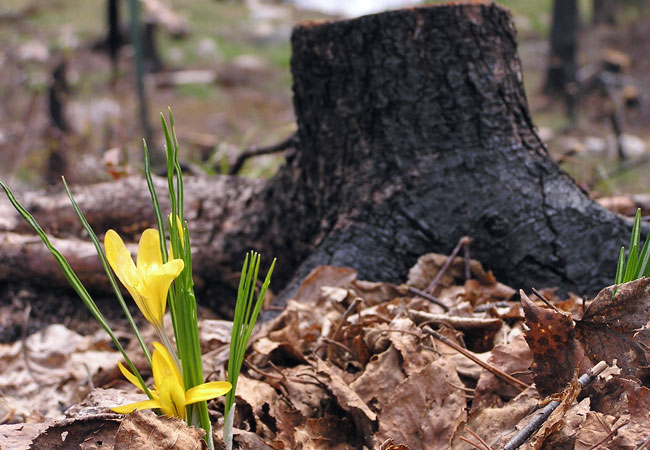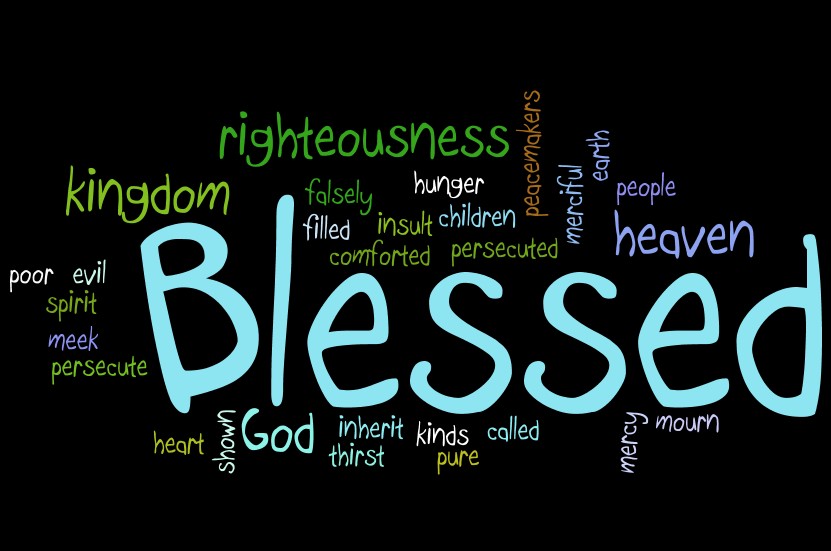Sermon – The Rev. Leah Schade
Advent 2, Dec. 8, 2013
Texts: Isaiah 11:1–10, Matthew 3:1–12
Do you sometimes feel like you’re surrounded by nothing but dead
stumps and cold ash leftover from the hot fires?
There are women in Afghanistan whose hands and lips and noses have
been chopped off, burned off with acid because their actions were judged
immoral. There are children hobbling
around on wooden legs because they’ve got nothing but a stump left from when
they stepped on a leftover war bomb as they were playing in the field.
There are literal stumps all over our deforested globe, from the
rainforests of South America, to the Appalachians in Pennsylvania – millions of acres of what used to be
beautiful, lush, green, thriving communities of plants and animals, now just
clear-cut, burned out acres either mined for air-choking coal or being prepared
for the monoculture of a single crop to feed a too-fast growing human overpopulation.
Sometimes the axe cuts closer to home. The strong tree that used
to be your job – bearing you good fruit, a steady paycheck, meaningful work,
the feeling that you were making an important contribution to this world,
providing you stability and friends, and something constructive to do with your
time. Now just a stump, cut down by the
corporate axe, or maybe your own mistakes – and the branches that supported
that good fruit are gone up in smoke.
The beautiful tree of a relationship you thought you could count
on. Maybe your mother or father, maybe a
brother or sister, maybe a son or a daughter, maybe life partner or a dear
friend. That relationship used to bear
good fruit. Affection, nurturing,
laughter, good advice, a shoulder to cry on, a good swift kick in the butt when
you needed it, but most of all a steady, strong love that sheltered you like
the branches of a tree in summertime.
And now, you look and there is just a stump. Maybe the person betrayed you. Maybe you said and did some hurtful
things. Or maybe the axe of death just
came out of nowhere and chopped it down.
Now there is nothing but a stump.
The Israelites knew something about dead stumps.
Our reading from Isaiah was written at a time when the Israelites
were in exile. They watched foreign
invaders come into their homeland, burn their city to the ground, take all the
precious holy items from their temple, and then tear it down to rubble. They watched soldiers kill their babies and
rape their wives, sisters and daughters.
They watched their bravest men cut down, clear-cut to make way for the
forcible removal of the few who survived the siege. They watched their sons and daughters taken
away, blown to the wind like ashes left from the fire.
They watched their king, a descendant of David, dethroned and
killed. They watched their whole world
fall apart, burn to the ground, and get chopped down by the blade of the
axe. Imagine the depression they must
have felt, living in chains, far from home, laughed at by their captors,
mocked, ridiculed, teased about their God who seemed like nothing but a dead
stump.
And then, like a voice crying out in the wilderness, comes a
prophecy from Isaiah:
A shoot shall come out from the stump of Jesse,
and a branch shall grow out of his roots.
2The spirit of the LORD shall rest on him,
the spirit of wisdom and understanding,
the spirit of counsel and might,
the spirit of knowledge and the fear of the LORD.
3His delight shall be in the fear of the
LORD.
He shall not judge by what his eyes see,
or decide by what his ears hear;
4but with righteousness he shall judge the poor,
and decide with equity for the meek of the earth (NRSV)
Isaiah
is saying to his fellow Israelites – do not lose heart! There is one coming who will lift us up out
of the ashes, who will restore hope to our people.
There
is a place in Huntington County, PA, where my father and I used to go hunting
in the woods when I was a young girl.
One fall morning we walked down one of our favorite pathways, expecting
to see the familiar greens, oranges, reds and yellows of autumn. But instead we saw only black and
greyness. A fire had gone through the
area just a few weeks before. I was
shocked and heart-broken to see the charred remains of leaves, young saplings,
logs and undergrowth. I felt like I was standing in a burned out graveyard –
with only stumps remaining like headstones memorializing the life that had
been. “It’s gone,” I cried. “Oh, it’s
gone forever!”
“Not
forever,” said my father. “Look,” he
said, pointing to a mass of blackened debris on the ground. He got on his knees and I joined him. Jutting up out of the darkness was a green
clump of grass. A little further on, we
noticed shoots of a young sapling coming up out of the burned ground.
“It
will take some time,” my father said.
“But just you wait. When we come
back here in the spring, things will be growing. By next fall, you’ll see just how well a
forest can recover from something like this.
In a few years, the new growth will have taken over and animals will be
able to live here again.”
And
he was right. I kept coming back every year and noticed how the color of charcoal
receded and the colors of a living forest returned. Though some of the trees forever bore the
blackened scars of that fire, the forest restored itself to a verdant,
life-giving, life-sustaining ecosystem.
It
took a long time for the Israelites to see their recovery. It would be a generation before they were
allowed to return to their land, to their home.
And when they got back, they were devastated by what they saw. But the words of Isaiah kept ringing in their
ears, because he proclaimed the words of their God reassuring them that life
would return to their people and to their land.
Their
history constantly reassures them of the power of their God to heal and to
restore and to make all things new.
Didn’t God restore the earth for
Noah after human sinfulness brought on the devastating floodwaters?
Didn’t God strategically place
Joseph in Egypt to feed his family in Egypt when a devastating drought fell on
the land of the Israelites?
Didn’t God drive back the waters of
the Red Sea so that the Israelites could leave behind their lives of slavery
and oppression?
Didn’t God lead them through the
desert places and send manna when there was no food and tell Moses to strike
the rock when there was no water?
Didn’t God take Ezekiel to the
valley of dry bones and show him how his Spirit would gather the holy remnant
together and join bone to bone, create muscle and connective tissue and skin
and hair and restore the community again?
Didn’t God do all this and
more? Then why are you cast down, O my
soul? And why are you disquieted within
me?
Why are you standing there looking
at your burned out, cut down stumps and crying?
Why aren’t you looking for green shoots?
Why aren’t you hearing the words of your God – “This devastation is not
forever. Look – see even now, I am
restoring something new in your life.
Just you wait, when you come back around to this next season, you will
see a change. By next year, you’ll see
just how well you can recover from something like this. In a few years, you’ll look back and though
you will still be able to see the scars, you’ll see just what I am capable of
restoring and healing and recreating in your life.”
Why are you cast down, O my soul?
And why are you depressed within me? Why
aren’t you going out to proclaim to the world the prophecy of Isaiah?:
6The wolf shall live with the lamb, The Taliban shall
live with the Afghan women and not harm them and shall treat them as equals
worthy of respect.
the leopard shall lie down with the kid, the soldier shall play
with the child in the fields because there will be no more hidden bombs because
war will be no more.
the calf and the lion and the fatling together, The
ecologist and the corporate developer and the ecosystem together shall find a
way to co-exist that honors all life and puts boundaries on human consumption
and learns to live within a sustainable way of life.
and a little child shall lead them.
A little child born two thousand years ago in a
little town of Bethlehem, a tiny green shoot coming out of the chopped off,
burned out stump of his ancestor Jesse.
A little child named Jesus shall lead them.
7The cow and the bear shall graze, the
evil powers that overcome relationships will recede and they will graze upon
the things that sustain like honesty and respect and faith and mutual
upbuilding.
their young shall lie
down together; and the lion shall eat straw like the ox. Corporations will no longer feed on
the flesh of consumers, on the flesh of their employees, hunting them like
lions and devouring them until there is nothing left but bones. Businesses will learn to see their work as
service, to turn from their sinfulness and be led to value even the lowest
employee with a sustainable wage.
8The nursing child shall play over the
hole of the asp, and the weaned child shall put its hand on the adder's den. People will no
longer die of diseases caused by toxic chemicals spewed into the air or poured
into the water. Children across the
globe will no longer die of dysentery because they will all have access to
clean water and good medical care and healthy, nutritious food.
9They will not hurt or destroy on all my
holy mountain; They
will no longer cut off a mountain at its roots just to get to the coal buried
deep inside. They will no longer
clearcut forests and uproot natural lands and build dams that flood whole
communities just to make money from selling electricity.
for the earth will be full of the knowledge of the LORD as the waters cover the sea. The
earth is already full of the knowledge of the Lord and seeks to teach us how to
live equitably, sustainably, peacefully.
The waters of the sea seek to teach us how to renew and restore, calling
on the power of God to cleanse all the earth from toxic sin.
10On that day the root of Jesse shall stand as a signal to the peoples;
See
the risen Jesus standing outside the
grave with his scarred hands and his pierced feet
And
the angels calling from heaven, He is Risen – Look he stands! Like a green blade rises from the buried grain. He stands
like a green shoot coming up out of the dead stump. He stands
like hope shaking off the dirt and rubble and the burial clothes from her body
and rising up once again.
He
stands!
And you stand because he
lives in you and he breathes in you and he has baptized you and he has restored
you and he has given hope to you and he is resurrecting you. He stands! And you stand!
The nations shall inquire of him, and his dwelling shall be
glorious.
People
from all over are going to look at you standing
and they’re going to say, why do you stand,
when you should be collapsed on the ground, why do you stand, when your world is falling apart and your body is falling
apart and the axe is lying at your roots and there’s nothing left of you but a
sad old stump, why do you stand?
And
you’re gonna say . . . and you’re gonna
say . .
Because
Jesus stands! Because Jesus lives! Because Jesus has restored all things! Because Jesus is in me and Jesus stands!
And his dwelling . . . his
dwelling shall be . . .. his dwelling shall be glorious!! He stands!



















